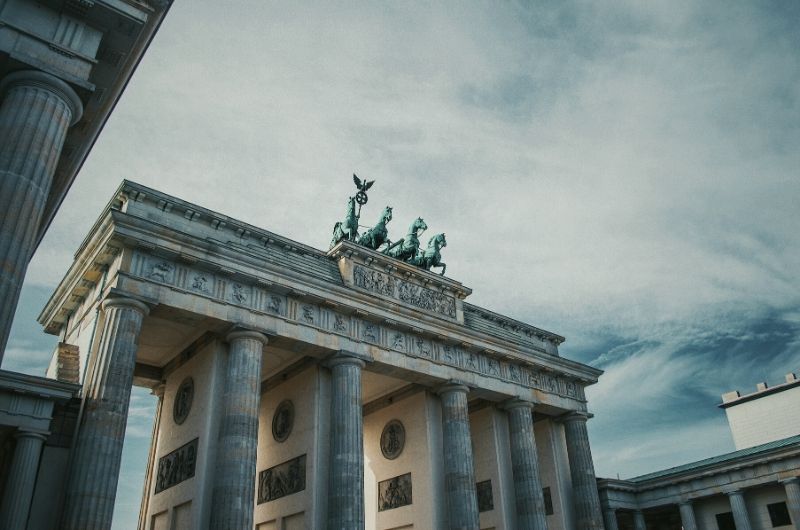
Cultural Differences – what to expect in Berlin?
Berlin, the capital city of Germany, is one of the most culturally-charged cities in the world. Apart from its enchanting architecture, rich culture and beautiful historic sites, Berlin is also popular among students for its high-quality education. In fact, it is one of the highest-ranked cities in terms of the quality of education that its educational institutions offer.
While the experience of studying abroad is an exciting endeavour, students must be prepared for the cultural differences they might face during the course of their study. If you are planning to pursue a higher education programme in Berlin, here’s what the start-up capital of the world has in store for you.

Berlin has proved to be a melting pot of several cultures, with people of different nationalities and ethnicities visiting the city for tourism and educational purposes…
Cultural sites to visit in Berlin
The Brandenburg Gate (1.3km from GISMA Berlin campus):
- Located in Pariser Platz, the Brandenburg Gate is a famous historic landmark and is one of the best places to visit in Berlin. Back in the day, this monument symbolised a divided nation. Today, it stands 26 metres high and is an epitome of unity and peace. Built in the 18th century, the monument is adorned with neoclassical architecture. It is also the venue for the New Year’s Eve party, with a footfall of about a million people for the event.
Museum Island (2.6km from GISMA Berlin campus):
- Also known as Spree Island, this UNESCO World Heritage Site is situated between the River Spree and Kupfergraben. This island houses some of the oldest museums, including the Bode Museum, the Old Museum (Altes Museum), the New Museum (Neues Museum), the Pergamon and the Old National Gallery. The museums and historical sites in Spree Island are world-renowned for their architecture and cultural significance.
Berlin Cathedral Church (2.8km from GISMA Berlin campus):
- This 75-metre-high dome is one of the most popular cultural sites and is the largest church in Berlin. The church witnessed damage during World War II; however, it was restored after decades of repair work. It is divided into three sections – the Memorial Church, the Baptismal and Nuptial Church and the Parish Church. The cathedral is decorated with bronze cornices and tempera paintings, and hosts many concerts and musicals.
The Berlin Wall Memorial (4km from GISMA Berlin campus):
- This memorial was built in 1998 to commemorate the division of Germany by the Berlin Wall and the people that died there. Today, only 1.4 kilometres of the original wall remains. The site also encompasses the Chapel of Reconciliation and the Window of Memorial.
The Gendarmenmarkt (1.5km from GISMA Berlin campus):
- Surrounded by three historical landmark buildings – the French Cathedral, the Konzerthaus and the German Cathedral – the Gendarmenmarkt is one of the largest squares in Berlin. Starting from classical concerts at the Konzerthaus theatre to the Christmas market in December, this picturesque square hosts a large number of public events. In fact, it is one of the most visited historical sites in Berlin. This square was built in the 17th century and has retained its unique beauty.
Cultural differences in food habits
One of the aspects of studying abroad that could be a cultural conflict for international students is the difference in food habits. German food is known to be hearty and heavy. However, that’s not all that this sophisticated and culturally-rich nation has to offer. In fact, the food available in Berlin is diverse, much like the people and the culture.
Berlin has proved to be a melting pot of several cultures, with people of different nationalities and ethnicities visiting the city for tourism and educational purposes. This is a good thing, especially if you are an international student with no past experience of German food culture. From Vietnamese to Indian, you can find restaurants and eateries of your choice in this beautiful city. You can check out the best restaurants in Berlin that you must try here.
Cultural differences in language usage
German is the official language in Germany; however, there are many other commonly spoken languages in Berlin, thanks to the various international students who choose Berlin as their study destination. Among the most popular spoken languages are English, Vietnamese, Croatian, Turkish, Arabic, Russian and Serbian.
International students who are from non-German speaking nations can utilise this multi-lingual city to help them learn German. Furthermore, they can also take up a German-proficiency test to get admission into an institution in Germany. GISMA Business School offers a University Pathway Programme to help students learn German and enrol for a higher education programme in an institution of their choice. Furthermore, professionals who want to learn the language to further their career can take up the German language course offered by GISMA Business School at their Hannover and Berlin campuses.
Cultural difference in architecture
Berlin experienced large-scale devastation during World War II and many of the buildings were damaged. The buildings that survived the bombings were demolished to give way to newly built residential areas and roads. Nonetheless, Berlin boasts of an extensive assortment of architecture, with neoclassical architecture being the dominant one. Some of the most famous examples of the grandeur of Berlin architecture are the Berlin Cathedral, Berlin State Opera, the Brandenburg Gate and the Berlin Wall Memorial.
If you are planning to pursue a language or postgraduate course in Berlin, GISMA Business School is an ideal choice for you. GISMA not only offers students the chance to network and learn in a progressive environment, but also allows them to acquire degrees in globally-recognised courses. The programmes offered at GISMA are awarded by internationally-acclaimed partners, like the triple-accredited Grenoble Ecole de Management, and taught by an experienced faculty. If you want to find out more about these programmes, click here.